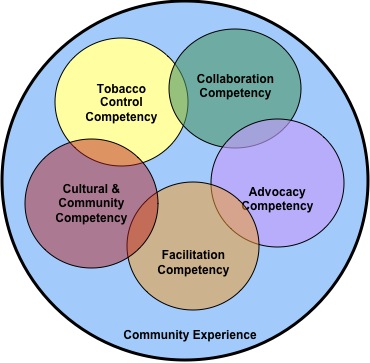APPEAL Leadership Model
In 1995, Asian American, Native Hawaiian and Pacific Islander communities were identified as having a low capacity to respond to tobacco issues around research, infrastructure, programs, and policy development.1 In response to this finding, APPEAL created a leadership model that would build the capacity of AA and NHPI communities to effectively address tobacco on a local and national level.
Philosophy
Embedded in the APPEAL Leadership Model is a comprehensive philosophy that incorporates the following principles:
- Being inclusive of diverse communities in a strategic and respectful way
- Tailoring trainings and programs to recognize different stages of community readiness to do tobacco control
- Believing in and nurturing the leadership capacity of each individual
- Working from an assets-based model rather than a deficit model of training
- Addressing tobacco comprehensively and relevantly as one of many social justice issues facing our communities
- Recognizing and balancing the three P’s (People, Process, Product) in any tobacco control initiative and training opportunity
Core Competencies
The Core Competencies of the APPEAL Leadership Model are:
- Tobacco Control
- Cultural Competency
- Collaboration
- Facilitation
- Advocacy & Policy
Tobacco Prevention and Control Leadership Competencies
Activities held during APPEAL’s Leadership Summits are designed to feature aspects of one or more of these competency areas.

